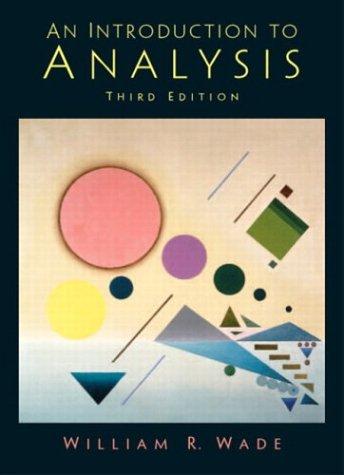Clearly, x is a number in (0,1) whose decimal expansion does not contain one 9, much less
Question:
Clearly, x is a number in (0,1) whose decimal expansion does not contain one 9, much less terminate in 9's. Since f is onto, there is a j E N such that f(j) = x.
Since we have avoided 9's, the decimal expansions of f(j) and x must be identical, e.g., ajj = f3j := ajj ± 1. It follows that 0 = ±1, a contradiction. I It is natural to ask about the count ability of the sets Z, Q, and R. To answer these questions, we prove several preliminary results. First, to show that a set E is countable, we do not need to construct a ONE-TO-ONE function from N onto E.
Fantastic news! We've Found the answer you've been seeking!
Step by Step Answer:
Related Book For 

Question Posted:





